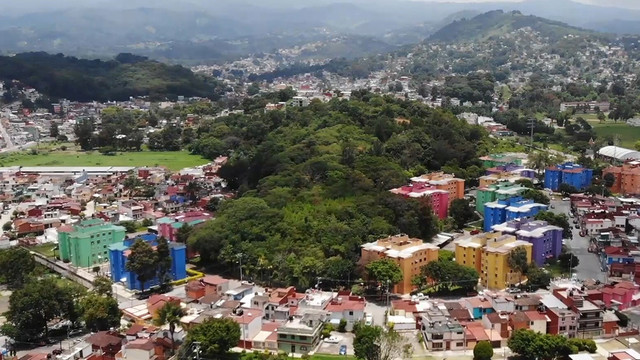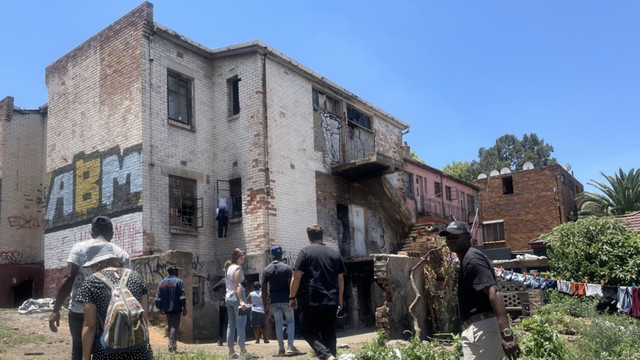Social protection that works for cities: lessons from the pandemic
This event on 31 October explored how urban social protection can tackle structural poverty and enhance the resilience of low-income city communities.

A man walks home after shopping in the city of Bulawayo, Zimbabwe 2020 (Photo: KB Mpofu/ILO, via Flickr, CC BY-NC-ND 2.0)
Over half of the world’s population live in low-income and informal urban communities and this proportion is growing. Despite the higher socioeconomic risks, people living in cities have less access to effective social protection compared to rural areas, and less resilience to urban shocks, stresses and crises.
Building on lessons from COVID-19 relief efforts in India and Zimbabwe, this online event debated whether successful urban social protection exists, what it looks like, and how it can be used to reduce structural poverty and build resilience in cities.
COVID-19 hit the world’s low-income and informal urban communities hard. The need for resources and relief from the pandemic impact was urgent, but many state and governmental responses were delayed or ineffective.
During this critical time, new sets of actors mobilised to respond to the crisis and diverse forms of social protection began to emerge. In some areas, food, healthcare, education, income support and social protection delivery systems were expanded and innovated with ‘temporary’ measures that created new categories of recipients, forms of entitlement and delivery mechanisms.
On World Cities Day, this online IIED Debates event explored lessons from pandemic relief efforts in two large Indian cities, New Delhi and Jaipur, and four informal settlements in Zimbabwe.
We brought together leading thinkers to ask: how can the lessons inform social protection design and delivery in cities in the Majority World? How can we harmonise social protection delivered by diverse state and non-state institutions in informal settlements?
Building on pandemic experiences, our speakers debated whether civil society organisations should be recognised as infrastructure for social protection in cities that go beyond final mile delivery and whether cities should be prioritised for the deployment of innovative alternative forms of social protection.
Speakers
- Anna Walnycki (moderator), principal researcher, Human Settlements research group, IIED
- Aditya Bahadur (moderator), principal researcher, Human Settlements research group, IIED
- Gautam Bhan, associate dean, School of Human Development, Indian Institute for Human Settlements, Bangalore
- Rashee Mehra, consultant, academics and research, Indian Institute for Human Settlements
- Teurai Anna Nyamangara, researcher and projects officer, Dialogue on Shelter
- Ian MacAuslan, partner, Human Development practice, Genesis Analytics
Coverage
You can watch a recording of the event below or on IIED's YouTube channel, where individual links to the start of each speaker's contribution are also provided.
About IIED Debates
This event was part of the IIED Debates series. Through the convening of expert speakers and external stakeholders, IIED brings together an international community to discuss critical issues.
IIED Debates encompass both physical and digital events, including critical themes, breakfast debriefs and webinars. These events are public and are hosted regularly throughout the year online and when possible in our London and Edinburgh offices.
IIED events newsletter
Sign up to our mailing list for updates and invitations to events throughout the year, including webinars, critical themes and debriefs.
Contact
Juliette Tunstall (juliette.tunstall@iied.org), internal engagement and external events officer at IIED



